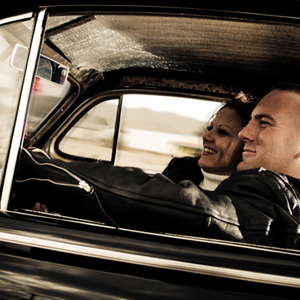
Drivers with the sleep disorder sleep apnoea are more likely to nod off at the wheel and fail simulated driving tests than motorists without the condition, new research finds.
Scientists from the University Hospital in Leeds, England, conducted two studies involving sleep apnoea - a pattern of disrupted breathing during sleep - and driving performance.
In one study, they tested the driving ability of 133 patients with untreated sleep apnea and 89 people without the condition using a simulated driving test. As they navigated the roughly 56-mile course, the "drivers" were assessed on completion, time spent in the middle lane, unprovoked crashes and crashes caused by veering off the road.
Twice as many people with untreated sleep apnoea (24%) failed the driving test, compared to 12% of those who didn't have the condition. The researchers noted many of the sleep apnea patients couldn't complete the test. They also had more crashes and had difficulty following a clear set of directions given at the start of the test.
"Driving simulators can be a good way of checking the effects that a condition like sleep apnoea can have on driving ability," said the study's chief investigator, Dr Mark Elliott, in a news release from the European Lung Foundation. "Our research suggests that people with the condition are more likely to fail the test."
What the study found
In another study, 118 people with untreated sleep apnea completed a survey about their driving behaviour and also took the simulated driving test. Their results were compared to those of 69 people who didn't have sleep apnoea.
More than one-third (35%) of those with sleep apnoea admitted to nodding off while driving. The researchers noted 38% of this group also failed the driving test. In contrast, only 11% of those without sleep apnoea admitted falling asleep while driving. And none of the motorists without sleep apnoea failed the driving test.
Both studies highlight the dangers of untreated sleep apnoea and driving, Dan Smyth, of Sleep Apnea Europe, said in the news release. "These studies give weight to the need for provision of sufficient resources for early diagnosis and treatment of sleep apnoea, where effective treatment ensures a return to acceptable risk levels for road users."
Interrupted sleep at night leads to daytime fatigue, and sleep apnea has previously been linked to increased risk for car crashes. People with the condition are also at greater risk for medical conditions such as high blood pressure.
Data and conclusions presented at meetings typically are considered preliminary until published in a peer-reviewed medical journal.
More information
The US National Heart, Lung, and Blood Institute provides more information on sleep apnea.
(Copyright © 2013 HealthDay. All rights
reserved.)




 Publications
Publications
 Partners
Partners















